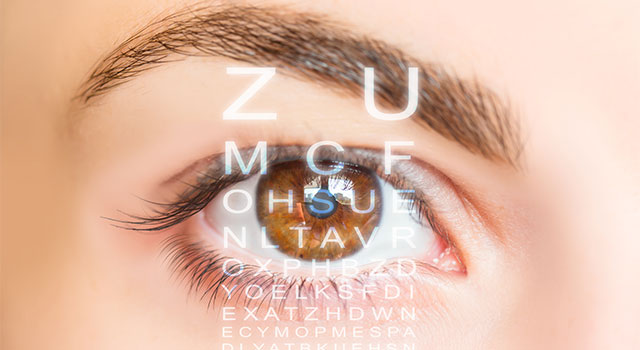Eyecare Near Me: Comprehensive and Reliable Vision Services
Eyecare Near Me: Comprehensive and Reliable Vision Services
Blog Article
Understanding the Various Eye Conditions Dealt With by Specialized Eye Care Professionals
In the realm of eye care, specialized specialists play a vital role in identifying and treating a vast range of eye conditions. As we begin on this exploration of the different eye conditions attended to by specialized eye treatment specialists, it becomes obvious that the complex internet of ocular wellness holds a myriad of remarkable understandings waiting to be uncovered.
Typical Refractive Mistakes
Refractive mistakes are common aesthetic conditions caused by a flaw in the eye's capacity to appropriately concentrate light, resulting in obscured vision. Astigmatism is identified by an irregularly shaped cornea, resulting in altered or obscured vision at all distances. Presbyopia is an age-related condition where the lens loses its flexibility, making it difficult to focus on close objects.
These refractive errors can be fixed with numerous techniques, including glasses, contact lenses, or refractive surgical procedure. Eye treatment experts play an important role in diagnosing and handling refractive errors to aid individuals achieve more clear vision and enhance their quality of life.
Age-Related Eye Conditions
One of the most prevalent age-related eye conditions is age-related macular degeneration (AMD), a condition that triggers central vision loss and can make tasks like reading and driving tough. Cataracts, an additional common problem among older people, trigger clouding of the eye's natural lens, leading to obscured vision. Normal eye tests with specialized eye treatment professionals are vital for early discovery and management of these age-related eye problems to protect vision and maintain eye health as people grow older.
Vision-Threatening Illness
Vision-threatening illness incorporate a variety of major eye conditions that have the potential to substantially affect an individual's vision and general visual function. These conditions present a risk of long-term vision loss if not quickly identified and dealt with by specialized eye care professionals. Some typical vision-threatening conditions consist of glaucoma, diabetic person retinopathy, age-related macular deterioration (AMD), and retinal detachment.
Glaucoma is a team of eye conditions that harm the optic nerve, usually due to high intraocular stress, leading to peripheral vision loss and prospective loss of sight if left without treatment. AMD is a modern condition affecting the macula, leading useful link to main vision loss.
Early discovery, routine eye tests, and timely intervention are critical in managing vision-threatening conditions to protect vision and keep high quality of life. Specialized eye treatment specialists play a crucial function in diagnosing, treating, and managing these conditions to avoid irreversible vision loss.

Corneal Problems
Corneal conditions incorporate a range of conditions that influence the clear front part of the eye, understood as the cornea. These problems can result in pain, aesthetic disruptions, and in severe situations, vision loss. One common corneal problem is keratoconus, where the cornea thins and protrudes exterior into a cone form, causing astigmatism and obscured vision. Corneal dystrophies, such as Fuchs' dystrophy, result in progressive vision loss due to uncommon down payments in the cornea. Corneal abrasions, typically brought on by injury or foreign objects, can cause pain, soreness, and level of sensitivity imp source to light. In addition, infections like keratitis can irritate the cornea, potentially resulting in scarring and vision impairment otherwise promptly dealt with. Therapy for corneal disorders differs depending upon the certain condition but might consist of medicines, call lenses, or in extreme cases, corneal transplants. Routine eye tests are essential for very early discovery and administration of corneal disorders to protect vision and eye wellness.
Neurological Eye Problems
Neurological eye conditions involve conditions that impact the connection in between the eyes and the brain, affecting visual processing and general eye function. These conditions can materialize in numerous means, impacting vision, eye motions, and even the sychronisation in between the eyes. One usual neurological eye problem is optic neuritis, defined by inflammation of the optic nerve causing vision loss, color desaturation, and discomfort with eye movement.
One more significant problem is nystagmus, where the eyes make recurring, unchecked movements, impacting aesthetic skill and depth assumption. Furthermore, problems like amblyopia, commonly described as "lazy eye," result from uncommon visual growth in early childhood years, resulting in reduced vision in one eye.
Neurological eye problems need customized care from experts like neuro-ophthalmologists that have competence in both neurology and ophthalmology. Diagnosis often entails a comprehensive eye evaluation, imaging researches, and collaboration with specialists to deal with the underlying neurological issues impacting the visual system. Treatment techniques can include medication, vision investigate this site therapy, or in serious cases, medical treatments to take care of these complex conditions efficiently.

Final Thought
In conclusion, specialized eye care professionals deal with a vast array of eye conditions, including usual refractive mistakes, age-related eye problems, vision-threatening illness, corneal disorders, and neurological eye problems - refractive surgeries in al. By recognizing these various conditions and seeking appropriate treatment from eye treatment experts, people can keep optimal eye health and wellness and vision. It is essential to prioritize regular eye exams and comply with advised treatment strategies to maintain and shield one's vision for the future
Report this page